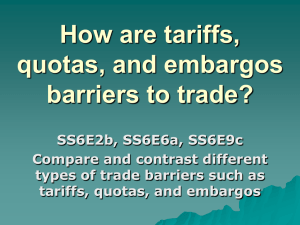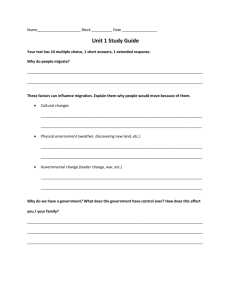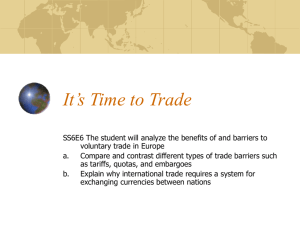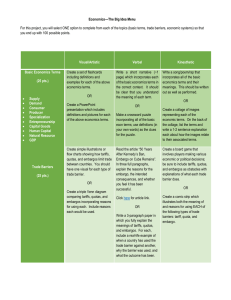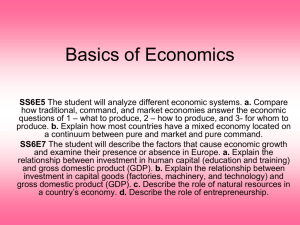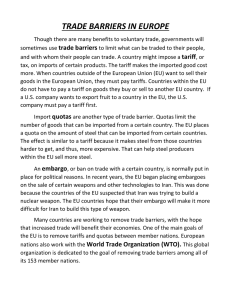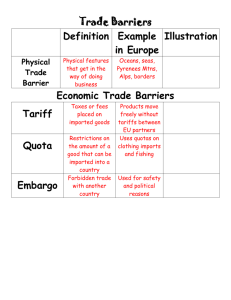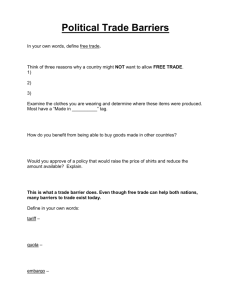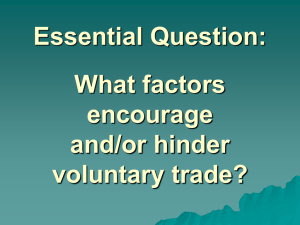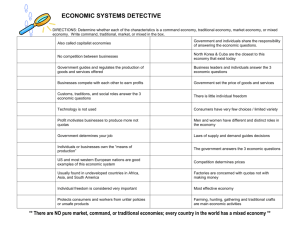Three Economic Systems Notes
advertisement
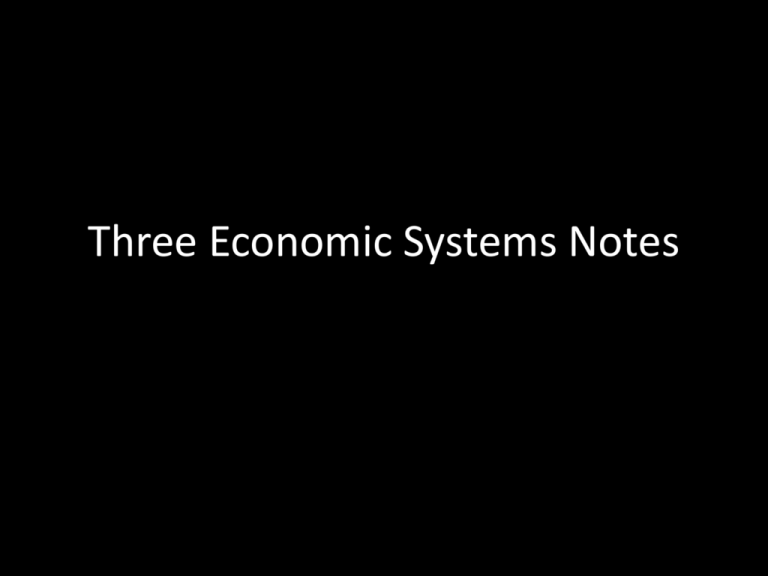
Three Economic Systems Notes Traditional Economy • What to produce? –What people need to survive. • How to produce it? –Hunting, farming, gathering (social roles determine who does what) • For whom to produce? –Make their own products (what they have always made) Characteristics of Traditional • Found in rural, non-developed countries (some parts of Asia, South America, and Africa) • Customs govern the economic decisions • Technology not used • Farming, hunting, and gathering are done the same way as the generation before • Activities are centered toward the family or ethnic unit • Men and women have different economic roles and tasks Command Economy • What to produce? –Whatever the government decides • How to produce it? –However the government decides • For whom to produce? –Class reward system; waiting in line/rations Characteristics of Command • Government or other central authority makes decisions about and determines how natural, capital, and human resources will be used. • Change can occur easily, because its government driven • Little individual freedom • No competition between businesses • Business are not run to create a profit • Consumers have few choices in the market • Factories are concerned about meeting quotas (not profit) Market Economy • What to produce? –What people want to buy and sell • How to produce it? –Supply and demand • For whom to produce? –Determined by how much someone is willing to pay for it Market Economy Characteristics • Resources (capital and natural) are owned by individuals • Economic decisions are made by individuals competing to earn a profit • Individual freedom is considered very important • Based on supply and demand (if people are willing to buy it, then businesses will make it) • Profit is the motive for increased work rather than quotas • Competition between businesses • Many economic freedoms and choice in the market Mixed Economy • Individuals own most resources and determine what and how to produce. • Government regulates certain industries. • Has features of both market and command economies. • The US has a market economy but the government still has control over wages, social security and some policies. Trade Barriers • Anything that slows down or prevents trade – Tariffs – Quotas – Embargos Trade Barriers Type of Barrier TARIFF QUOTA EMBARGO Definition Barrier in Action Why it matters A tax on imports The United States charges a 30% tax on all steel entering the country. This helps protect U.S. steel companies from foreign competition. Tariffs make money for the importing country. They also raise the price of imported goods, encouraging people to buy items made in their own country. A limit on the amount of products that can come into a country. In the 1980s, the Japanese only exported only a certain number of cars to the US. Quotas helps to encourage the people of a country to buy products made in their country and not foreign goods. Cutting off trade to a certain country because of political reasons. Because of Saddam Hussein’s actions in 1990, the United States put an embargo on Iraqi products. Embargoes hurt the exporting country because we don’t buy their products. It also makes a political statement. Illustration Trade Barriers Type of Barrier TARIFF QUOTA EMBARGO Definition Barrier in Action Why it matters A tax on imports The United States charges a 30% tax on all steel entering the country. This helps protect U.S. steel companies from foreign competition. Tariffs make money for the importing country. They also raise the price of imported goods, encouraging people to buy items made in their own country. A limit on the amount of products that can come into a country. In the 1980s, the Japanese only exported only a certain number of cars to the US. Quotas helps to encourage the people of a country to buy products made in their country and not foreign goods. Cutting off trade to a certain country because of political reasons. Because of Saddam Hussein’s actions in 1990, the United States put an embargo on Iraqi products. Embargoes hurt the exporting country because we don’t buy their products. It also makes a political statement. Illustration
